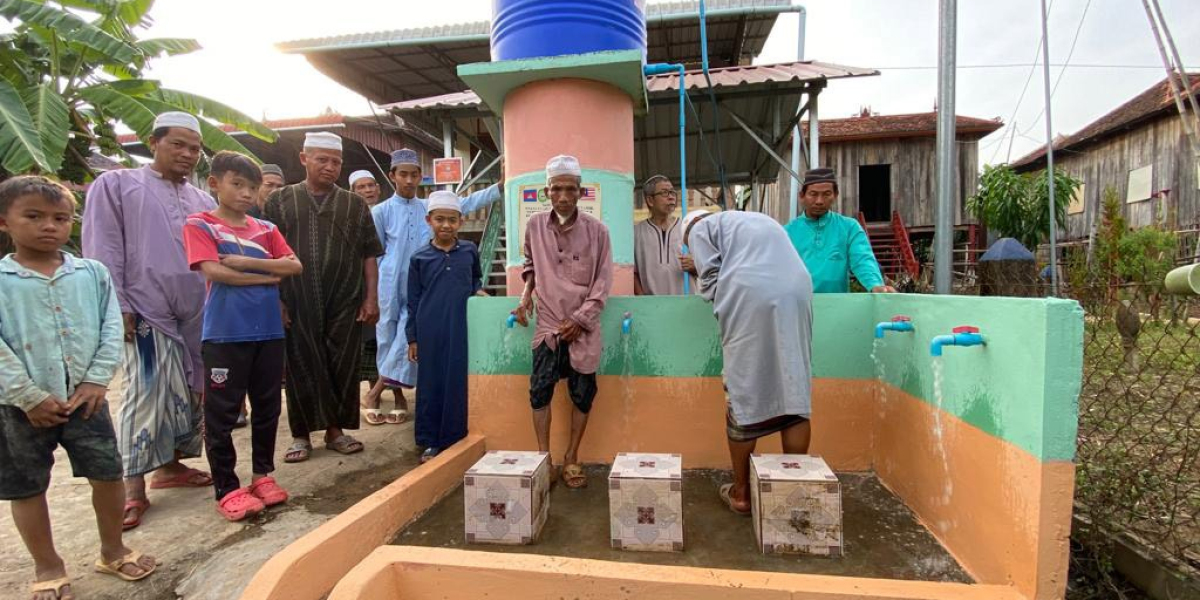Here are some of the virtues of providing electric wells with proper ablution places for mosques, musollas, and madrasahs in Islam:
- It facilitates performing wudu (ablution) for prayers. Having running water makes it easier for worshippers to complete the necessary washing for worship. This removes physical barriers and makes it more convenient to fulfill religious duties.
- It maintains cleanliness and purity. Running water helps keep ablution areas clean and hygienic. This prevents the spread of germs and diseases. It keeps the places of worship clean in accordance with Islamic teachings of purity.
- It accommodates more worshippers. Larger ablution facilities with water supply can serve more people simultaneously, allowing mosques, musollas and madrasahs to accommodate larger congregations for prayers and programs. This fulfills the goal of making worship accessible to all.
- It saves time. With electric taps and water supply, worshippers do not have to wait long in lines or struggle to collect water. They can concentrate more on acts of worship instead of mundane tasks. This optimizes time spent in worship.
- It sets a good example. Modern facilities demonstrate progress and development of the community. It encourages more people, including youth, tovisit and take part in religious activities. This helps strengthen and preserve Islamic heritage.
- It is a Here are some of the virtues of providing electric wells with proper ablution places for mosques, musollas, and madrasahs in Islam:
- It facilitates performing wudu (ablution) for prayers. Having running water makes it easier for worshippers to complete the necessary washing for worship. This removes physical barriers and makes it more convenient to fulfill religious duties.
- It maintains cleanliness and purity. Running water helps keep ablution areas clean and hygienic. This prevents the spread of germs and diseases. It keeps the places of worship clean in accordance with Islamic teachings of purity.
- It accommodates more worshippers. Larger ablution facilities with water supply can serve more people simultaneously, allowing mosques, musollas and madrasahs to accommodate larger congregations for prayers and programs. This fulfills the goal of making worship accessible to all.
- It saves time. With electric taps and water supply, worshippers do not have to wait long in lines or struggle to collect water. They can concentrate more on acts of worship instead of mundane tasks. This optimizes time spent in worship.
- It sets a good example. Modern facilities demonstrate progress and development of the community. It encourages more people, including youth, tovisit and take part in religious activities. This helps strengthen and preserve Islamic heritage.
- It is a form of community service. Providing basic worship amenities serves the religious needs of Muslims. It uplifts thaaqa AA q1aqe status of places of worship and strengthens the bond of the ummah. Donors are rewarded for facilitating worship for others.
So in summary, such projects make worship easier, encourage religious participation, and are acts of voluntary service that strengthen communities – all of which are virtues in Islamic tradition. Modernization should always complement, not compromise, religious duties. of community service. Providing basic worship amenities serves the religious needs of Muslims. It uplifts the status of places of worship and strengthens the bond of the ummah. Donors are rewarded for facilitating worship for others.
So in summary, such projects make worship easier, encourage religious participation, and are acts of voluntary service that strengthen communities – all of which are virtues in Islamic tradition. Modernization should always complement, not compromise, religious duties..







